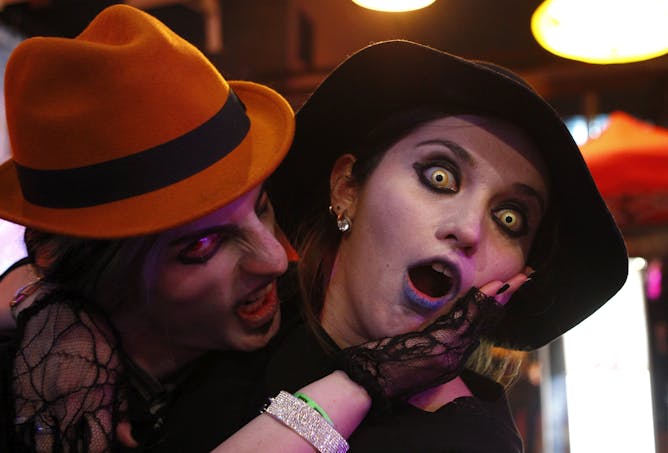
Young adults now spend more money on costumes than any other age group.
Michaela Rehle/Reuters
Linus Owens, Middlebury College
The holiday used to be all about trick-or-treating in the neighborhood. No more – and it could something to do with the fact that traditional markers of adulthood have changed.
|
Beliefs
|
-
Tok Thompson, University of Southern California – Dornsife College of Letters, Arts and Sciences
Ghost stories are often about the departed seeking justice for an earthly wrong. Their sightings are a reminder that ethics and morality transcend our lives.
-
Meghan Henning, University of Dayton
Hell-themed Halloween attractions play on people's fears. The early depictions of hell were meant to use fear as a moral guide to help others.
|
|
Fear
|
-
Margee Kerr, University of Pittsburgh
Visiting a haunted house or watching a horror movie can be terrifying and enjoyable at the same time. A sociologist explains the psychological benefits of being safely scared.
-
Frank T. McAndrew, Knox College
The best haunted houses push buttons in our brains that evolved long before houses even existed.
-
Arash Javanbakht, Wayne State University; Linda Saab, Wayne State University
We may pretend that we do not like fear, but Halloween proves otherwise. Many of us enjoy being scared. But why?
|
|
Trick-or-treating
|
-
Jay L. Zagorsky, Boston University
'Trick or treating' typically involves demanding candy under the threat of mischief. But is there a better way to maximize your candy haul on Halloween?
-
Regina Hansen, Boston University
Everything you need to know about the history of Halloween.
|
|
History, monsters and folklore
|
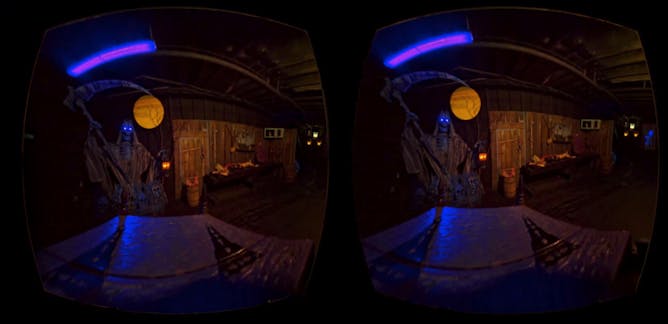
Joel Zika, Deakin University
The virtual reality rides of the early 20th century are now being documented in digital VR.
| |
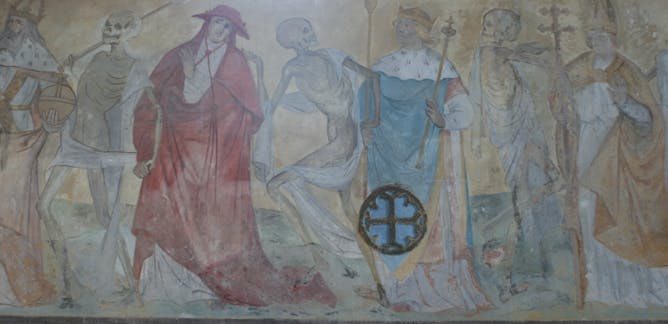
Ashby Kinch, The University of Montana
For medieval cultures, the dying process and death itself was a 'transition,' not a rupture.
|
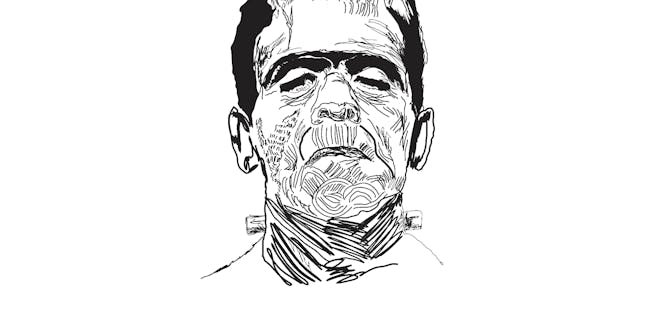
Leo Braudy, University of Southern California – Dornsife College of Letters, Arts and Sciences
All the popular monsters you'll see out trick-or-treating, from Frankenstein to Dracula, were born out of fear and anxiety about change and technology.
| |
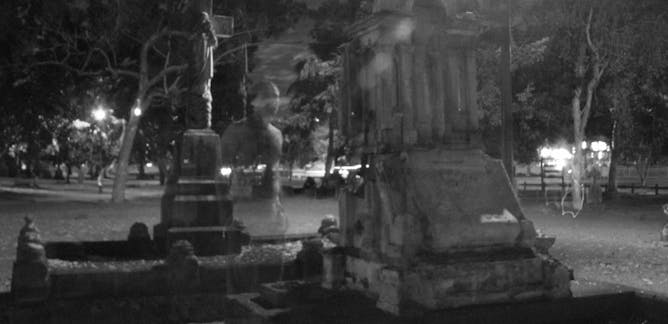
Michael Nees, Lafayette College
Ghost hunters love to record and parse EVP – electronic voice phenomena – they say are messages from spirits. But perceptual psychology has scientific reasons for why what they're hearing isn't from the other side.
|
|
|
From our international editions
|
-
Maria Haley, University of Leeds
How Romans overcame their fear of witches by finding them funny.
-
Lizzy Lowe, Macquarie University
There are plenty of reasons to love and not hate spiders, but let's start with just eight.
-
Ann-Louise Davidson, Concordia University
Maker culture--a worldwide movement of do-it-yourselfers who tinker with disruptive technologies--have come together to build and design a Halloween costume perfect for kids using wheelchairs.
|
|